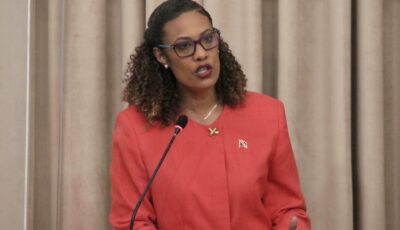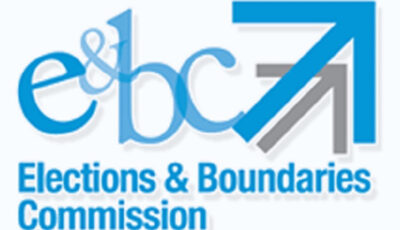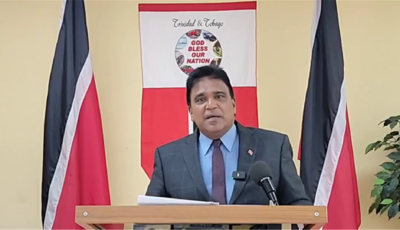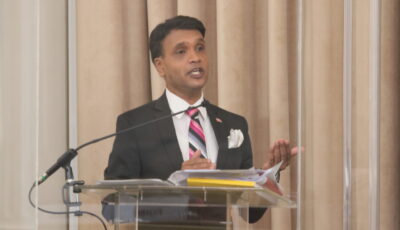HEADLINES
Commentary
Rowley strenuously objected to the construction of Penal-Debe UWI Campus
The media is reporting that the UWI Penal-Debe Campus, built during the People’s Partnership Administration continues to sit empty and has never
Posted On 30 Oct 2023
Blighted WGTL Project continues to haunt PNM
That World Gas-to-Liquids project is another of the many PNM scandals and failed projects which has cost taxpayers billions of dollars! And it is
Posted On 22 Jun 2023
Who financing Balisier House?
Ferdinand Ferreira, a founding member of the People’s National Movement (PNM), is quoted in the media as saying that the party has always
Posted On 03 Apr 2023
UNC SENATORS DEFENDED THE PARTY WELL TODAY
Today, the Opposition UNC Senators defended themselves and the Party well from the frivolous, anti-democratic motion by Senator Anthony Viera.
Posted On 22 Feb 2022
COVID WORKERS FIGHTING A WAR WITHOUT THEIR PROPER WEAPONS
We congratulate Kamla Persad-Bissessar on her success in forcing the Government to conduct an inquiry into the handling of covid. We take this
Posted On 20 Feb 2022
Letters
For fools rush in where angels fear to tread
The National Security Minister’s recent unrestrained language and conduct towards judges and unjustified criticisms of their judicial functions
Posted On 14 May 2023
Seek a fresh mandate
I recently read in one of the daily newspapers that Minister of National Security Fitzgerald Hinds said that 70% of society wants to see him
Posted On 27 Dec 2022
Don’t Blame God for Rowley’s Dotishness
Prime Minister Keith Rowley at the PNM convention on December 4, 2022, announces a National Day of Prayer. He said the country must come together
Posted On 16 Dec 2022
Keith Rowley has betrayed the sanctity of Parliament
Dear Editor, The revelation by the Commissioner of Police that the emails which Keith Rowley, then Opposition Leader read in our nations
Posted On 19 Jul 2019
T&T owes Kamla a debt of gratitude
Kamla Persad-Bissessar did what many were not expecting… she and her MPs voted unanimously with the Government to ensure passage of the Civil
Posted On 09 Apr 2019
Press Releases
Tancoo: Flooding imminent as Government fails to act
After a couple days of scattered “April showers” earlier this week, MP for Oropouche West, Dave Tancoo is again warning that severe flooding in
Posted On 06 Apr 2024
MP Khadijah Ameen wants justice for Kiss Driver’s death
Member of Parliament for St. Augustine, Ms. Khadijah Ameen is calling for justice for the death of Kiss delivery driver, Neil Ballai. Ballai was
Posted On 06 Apr 2024
UNC’s Persistent Pressure Forces Rowley Gov’t to Release 2024 EBC Report
On the heels of intense, consistent pressure from the UNC over their highly questionable refusal to lay the 2024 EBC Boundaries Report in
Posted On 06 Apr 2024
Moonilal: Hinds Fails Fire Service, Lives at Risk as Equipment Crumbles
The collapse of the Trinidad and Tobago Fire Services is another crushing indictment on the spectacularly failed Fitzgerald Hinds as Minister of
Posted On 05 Apr 2024
Padarath: Gov’t Electricity Rate Hike “Unbearable Burden”
Princes Town MP, Barry Padarath said that the contents of a report in yesterday’s Business Guardian headlined “RIC Recommends
Posted On 05 Apr 2024
Speeches
Tancoo: calls on Imbert to have a heart and indemnify the population
Today we come to you to shine some light on a very worrying development that has happened in the past few days. I am sure many of you saw or
Posted On 08 Sep 2021
Rowley’s Mad Power Grab in Tobago
My friends, we are seeing a government that is in freefall – in every single sector. Health, National Security, the business sector. And what
Posted On 16 Feb 2021
Presentation of UNC general election candidates 2020
T&T family! UNC family! It is my absolute pleasure to speak with you today, as we get ready for the sweeping victory that is to come on
Posted On 19 Jul 2020
Kamla: My vision is to build an intelligent nation
“ON THE BALLOT” UNC VIRTUAL MEETING (June 25, 2020) Introduction Good evening and thank you for joining us once again as we continue to set the
Posted On 26 Jun 2020
MNF – Kamla: There is hope
Introduction Good evening T&T! Good evening UNC family! It is good to be back! 2020 we are ready to rumble! Are you ready? Even though it’s
Posted On 11 Mar 2020
Copyright © - 2023 United National Congress







Stakeholder groups stand with PM
Prime Minister Kamla Persad-Bissessar walked the talk last week on the promise of consultation, and met with leaders of the business community, stakeholders in the energy sector and 17 trade unions, including the Public Services Association (PSA), which represents the majority of workers in the public service.
Sadly, the Joint Trade Union Movement (JTUM), led by Ancel Roget, refused to attend on the spurious argument the invitation was improper and insulting. In effect, Roget placed his personal political agenda ahead of the workers’ interests in the same way David Abdulah, who had a seat inside the administration, walked away from the best opportunity he had to seek the interest of workers.
Mrs Persad-Bissessar was genuine in her proactive approach to meeting with these different stakeholder groups before heading to Washington, DC, for talks on energy matters with US Vice President Joe Biden. In each session, she outlined her Government’s position and listened to the views and concerns of the respective groups, hoping the exchange of ideas would lead to finding the right answers to deal with the changed economic situation due to the dramatic fall in the price of oil since November last year.
Having heard from each group, she has taken action to deal with key matters raised. Such a position is unprecedented and has demonstrated the kind of leadership that moves a country forward.
While critics have been quick to label it as a PR exercise, it is clear this is a sincere attempt at initiating a continuing dialogue with business, labour and Government.
During previous periods of crises, both the People’s National Movement and National Alliance for Reconstruction governments used a “slash and burn” approach—cutting salaries, raising taxes and reducing the labour force. Even today, Opposition Leader Dr Keith Rowley is talking about deep cuts that would hurt the people and take away crucial social benefits.
So far with all the temptations and suggestions from the Opposition to cut back on the social safety net, Mrs Persad-Bissessar has stood firm in her resolve to protect the most vulnerable and to keep everyone employed.
The Government’s declared policy is to save through delaying major infrastructure projects and reducing expenditure in every ministry and department while protecting vital programmes.
That approach demonstrates a kind of caring and compassion we have never seen in any government of Trinidad and Tobago. The willingness of stakeholder groups to meet and share ideas with the country’s leader is a strong endorsement of her style of leadership as well as the people-centred policies she has been able to maintain since taking office.
While each group would naturally have its private and personal agenda or even political position, each agreed to put that aside for the greater national good, except JTUM and Mr Roget.
This would have been a splendid opportunity to air the concerns of JTUM and the Oilfields Workers’ Trade Union (OWTU) in a semi-public forum, especially since those views would have been recorded and likely taken up in Washington during the energy meeting taking place today.
But Roget’s ego and his politics are too strong to sit face-to-face with the lady he has maligned all over Trinidad and Tobago, pledging in 2012 to bring down her Government, “no progress, no development, no industrial peace…strikes, more strikes and more strikes; when the time is right the country will come to a screeching halt”, he promised.
Through good leadership and sound fiscal management, the Persad-Bissessar Administration is nowhere near where Roget wants it to be. But he remains fixed in his position. Instead of representing the people who pay him a big fat salary and benefits, he prefers his unilateral pronouncements without any regard for the membership of his union and the JTUM.
If he wants to be honest, Roget would admit the Persad-Bissessar administration has been the most labour-friendly ever. Since taking office, the People’s Partnership Government has settled 87 outstanding collective agreements, it has raised the minimum wage twice, which now stands at $15 per hour, and has never taken any anti-labour position.
What we witnessed is vintage Kamla. She involved, discussed, listened and included—all hallmarks of her consensual, participatory and inclusive style of bringing all parties to the table, empowering them and giving them a stake in the country’s future. Contrast that with the style of Dr Rowley, which on the surface appears to be autocratic and based not on the perspectives of many, but the views of one man.
Trinidad and Tobago is fortunate to have the present leadership at this time of economic instability. Mrs Persad-Bissessar and her team remain calm and focused, putting people first as they deals with the current situation professionally and efficiently.
EXPRESS
Share this:
Like this:
Rambharat shows lack of commitment
Leadership – Prime Minister Kamla Persad-Bissessar vs Opposition Leader Keith Rowley
Commentary
Rowley strenuously objected to the construction of Penal-Debe UWI Campus
Blighted WGTL Project continues to haunt PNM
Who financing Balisier House?
UNC SENATORS DEFENDED THE PARTY WELL TODAY
COVID WORKERS FIGHTING A WAR WITHOUT THEIR PROPER WEAPONS